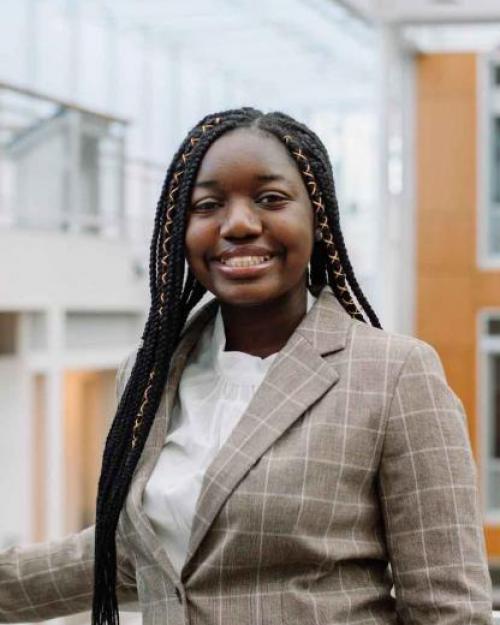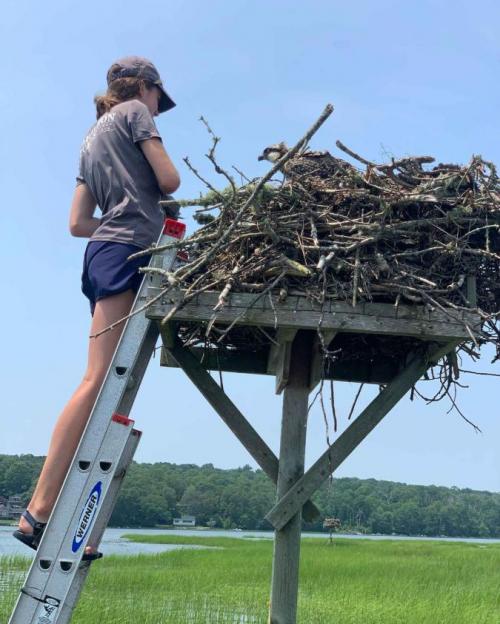Emma Harte ’22 spent a lot of time at the beach this summer, protecting and studying piping plovers and common terns. Aisha Conte ’23 did research to support two projects — a legal effort to force government action to stop the pollution of water in Ghana caused by illegal mining and a guide to help women refugees in South Africa to become effective leaders in their communities.
Both students received Serve in Place Fund grants from the Office of Engagement Initiatives (now the David M. Einhorn Center for Community Engagement) to support their work. The fund supports students working on community-based research activities or community-engaged learning projects in their home areas or remotely.
“We would get to the beach about 7 in the morning, when the light was good for seeing tracks in the sand,” Harte said about her daily routine with Mass Audubon’s Coastal Waterbird Program in her home state of Massachusetts. “We check the nests, count the numbers of adults and chicks and record what they’re doing. We also fix the symbolic fences and talk to a lot of people on the beach who wonder why the fencing is up.”
Both the plovers and terns are protected species in Massachusetts, so Harte and other members of the team help people understand how seemingly benign beach activities like walking your dog or flying a kite can disrupt the birds and impact their nests.
“It’s really hard to see the chicks, so you might not even see the nest to steer your dog away,” said Harte, a biological sciences major. “And some kites can look like a predator if they’re too close to the nest, so the adults will get off the nest and attack them.”
Harte also created educational materials and delivered programs to children at the Mass Audubon’s nature centers.
“One of the things I enjoyed about this job was being able to be outside for part of the day, that’s important to me, “ she said. “I also think the internship has helped me to see that I’m interested in conservation, science communication and environmental education. I definitely enjoyed working with the older kids.”
Conte was able to explore her interests in law by working with the Ghanian attorney on the mining case. “I didn’t even think it was possible to hold the government accountable in a court of law, using laws that they passed against them,” she said. “It was a great experience.”
Her other experience, with the Whole World Woman Association, helped her to see that women’s issues are something close to her heart. The guides she worked on will be distributed to women in communities around Cape Town.
“As soon as guides get distributed, community meetings begin and they can be a catalyst to so many revolutions,” said Conte, who is majoring in sociology. “People can engage with one another in a practical way and have conversations that are very fruitful.”
Conte said the two experiences together helped her think about her future options.
“I always knew I wanted to become a human rights lawyer, but this confirmed that the sector I want to work in is women’s and children’s rights,” she said. “This also opened my eyes to the daily tasks of a lawyer and the challenges along the way.”





